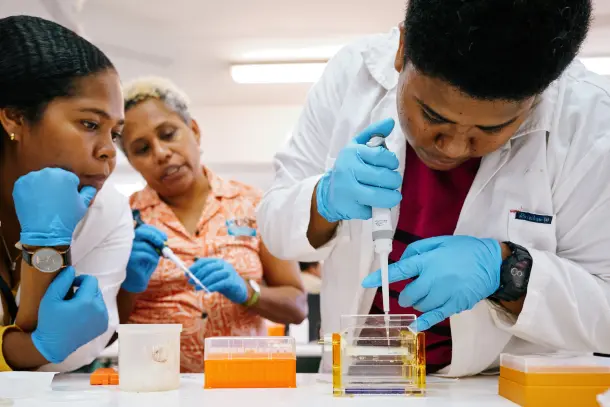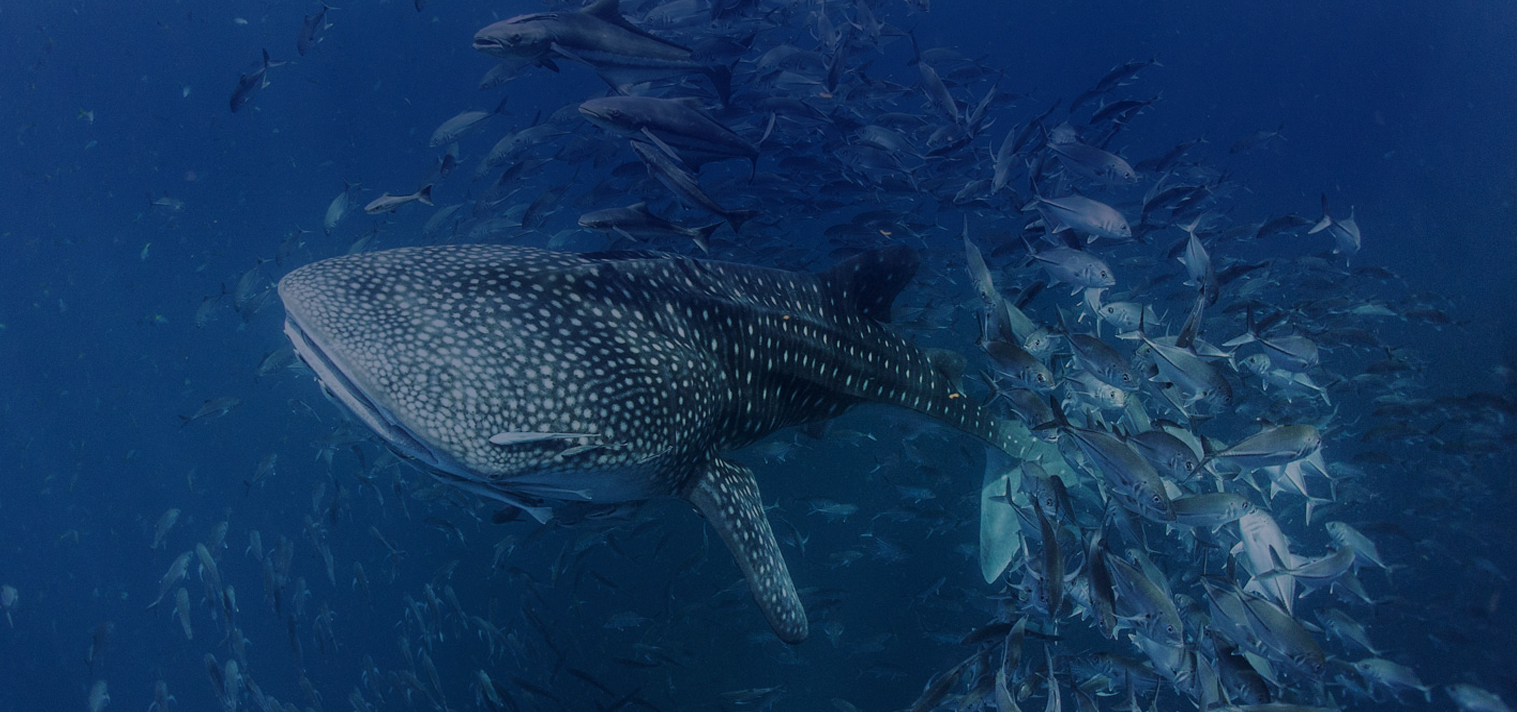PacMAN Fiji achieves "Marine Invasive Species Monitoring-Ready" status as project is completed
Marine invasive species threaten biodiversity, ecosystems, and the livelihoods of Small Island Developing States (SIDS) like Fiji. These organisms disrupt fragile marine ecosystems, endanger native species, and undermine the blue economy.

Implemented by the Intergovernmental Oceanographic Commission of UNESCO as part of the Ocean Biodiversity Information Systems (OBIS) Programme, the Pacific Islands Marine BioInvasions Alert Network (PacMAN) has been endorsed by the Ocean Decade and was designed to combat the challenges posed by marine invasive species by equipping Fiji with state-of-the-art tools, robust protocols, and expert training to enable rapid detection and effective management.
“Invasive species are like wildfires—you want to stop them before they spread out of control. Thanks to support from OBIS, Fiji now has the tools to monitor and detect marine invasive species early,” said Ward Appeltans, the OBIS Programme Manager.
The project also aligns with Target 6 of the Kunming-Montreal Global Biodiversity Framework, adopted under the Convention on Biological Diversity, which calls for reducing the introduction and establishment of invasive alien species, particularly in vulnerable ecosystems. By developing local capacity, fostering cross-sector collaboration, and implementing advanced monitoring systems, PacMAN provides a practical model for achieving this global biodiversity target.
Key Achievements of PacMAN:
- Innovative Monitoring Protocols: Developed and tested a comprehensive plan for systematic data collection on invasive species, ensuring local relevance.
- Cutting-Edge Molecular Techniques: Conducted Fiji’s first-ever environmental DNA (eDNA) training, equipping local scientists and technicians with skills in eDNA analysis and qPCR assays for early detection of high-risk species.
- Scientific Insights: Analysed 188 samples using metabarcoding, identifying four high-risk invasive species and assessed 1000s of potential invasive species.
- Technological Advancements: Developed the PacMAN bioinformatics pipeline aligned with global biodiversity data standards and the PacMAN decision support tool integrated into the Ocean Biodiversity Information System (OBIS) for rapid invasive species alerts.
- Regional Leadership: Risk-assessed thousands of species to inform proactive management strategies, positioning Fiji as a leader in marine biosecurity efforts.
eDNA technology, which detects genetic material left behind by organisms in the environment, emerged as a game-changing tool in this project. Its sensitivity, scalability, and cost-effectiveness make it an ideal solution for addressing biosecurity challenges in Fiji and across the Pacific region.
Collaboration for Success
PacMAN’s achievements was made possible through the collaboration of numerous stakeholders, including Fiji’s Ministry of Environment, the Ministry of Fisheries, the Biosecurity Authority, the Maritime Safety Authority, the Fiji Ports Corporation, and regional partners such as SPREP and SPC. International expertise from institutions like Deakin University, the University of the South Pacific, and the OBIS team also played a pivotal role in the project’s success.
As the project transitions to local leadership, UNESCO’s Intergovernmental Oceanographic Commission (IOC) remains committed to supporting Fiji and the wider Pacific region in scaling up marine biosecurity efforts. By building on PacMAN’s foundations, Fiji is poised to lead regional initiatives to protect marine ecosystems and sustain livelihoods dependent on the ocean.
A Step Toward Global Goals
The successful implementation of PacMAN protects Fiji’s marine biodiversity. It contributes to the global effort to address the threats of invasive species under Target 6 of the Kunming-Montreal Global Biodiversity Framework. This success underscores the importance of local capacity building and innovative science in achieving meaningful progress toward biodiversity conservation goals.
Looking Ahead
The conclusion of PacMAN marks a significant milestone, but the fight against marine invasive species continues. With strengthened capacity, advanced tools, and a collaborative framework, Fiji is well-equipped to safeguard its marine environments and inspire similar efforts across the Pacific. Together, we can protect the ocean and the communities it sustains.
For further details, visit https://portal.pacman.obis.org/about or contact pacman@obis.org.







